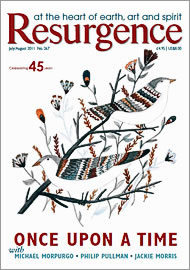There is a riddle that schoolteachers in France use to teach children about exponential growth, which also frames the urgency of Lester Brown’s latest book remarkably well. It goes like this: A lily pond has one leaf in it the first day, two the second day, four the third day, and the number of leaves continues to double each day. If the pond fills on the 30th day, when is it half full? The answer: the 29th day.
Brown believes that, unfortunately for our overcrowded planet, we may now be beyond the 30th day in terms of our civilisation’s environmental and economic sustainability. It is with this sense of urgency that he seeks in this book to pose and provide answers to the most pressing riddles in current human development, such as: if we continue business as usual, how much time do we have left before our global civilisation unravels, and furthermore, how do we save it?
To answer this, Brown begins by looking at our deteriorating foundations built upon now outdated neoclassical economic models, perforated with leaky externalities that precipitate continued degradation of the natural environment. What is required to secure our foundation, he asserts, is nothing less than a Copernican shift in our economic thinking. Otherwise, what awaits is societal collapse around one key and weakening link in modern society: food.
Brown gives many startling examples of how peak water, peak oil and climate change are causing higher food prices, soil erosion, desertification, depletion of fossil aquifers and the loss of fertile land, all of which threaten food production on almost every continent, increasing food prices in shared markets all over the world.
To demonstrate this, Brown explains how the melting of a glacier in Tibet can cause higher food prices in America. After initial increases in river flow from the melting glacier, food production is raised; but as the river dwindles, food production plummets, causing higher food prices in China, which in turn begins to import from the world’s largest grain producer, the USA. The US population then has to compete for supplies with another billion people, and the price of grain goes up with increasing demand and limited supply. Add to this situation of competition amongst a growing global population, and what results is a politics of food scarcity, wherein a race is run between natural and political tipping points.
After outlining this perfect storm within the global food economy, Brown gives his response, Plan B, which will be familiar to previous readers of his work. It is in this section of the book that he really hits his stride, and the book positively shifts gears to meet the urgency of his message.
Plan B has the aim of creating a new infrastructure and economy based on true-cost accounting with honest markets and a five-fold increase in renewable energy. Gone are the days of externalities and fossil fuels, and Brown’s Plan B holds no space for nuclear power either.
The key thread throughout the book is food, the highlighting of which provides a focal point that ties together many of the myriad threads of sustainability into a compelling argument for change. The approach incorporates low-carbon energy, restoring the economy’s natural support systems, eradicating poverty, stabilising populations, rescuing failing states and feeding 8 billion people. A huge undertaking by anybody’s measures, but one addressed here in a concise and inspiring manner full of both determination and the excellent use of comprehensive research from around the world.
Consistently framed within this global perspective, both the response of Plan B and the book as a whole are packed full of facts, statistics and real-world examples that make it as well-sourced as it is inspiring.
Readers looking for a wider discussion will find more detail in Brown’s 2009 Plan B 4.0, but World on the Edge works well as a succinct overview of pressing issues in sustainable development today. Excellent food for thought, it sets out Lester Brown’s compelling vision to clear the lily pond, leaf by ever-growing leaf.






